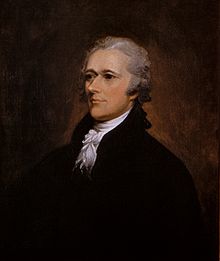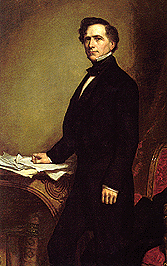November 23 is:
National Cashew Day
National Espresso Day!
Annapolis, Maryland, became US capital in November, 1783. (until June 1784). This city served as the seat of the Confederation Congress (former Second Continental Congress) and temporary national capital of the United States in 1783–1784. At that time, General George Washington came before the body convened in the new Maryland State House and resigned his commission as commander of the Continental Army. A month later, the Congress ratified the Treaty of Paris of 1783, ending the American Revolutionary War, with Great Britain recognizing the independence of the United States. The city and state capitol was also the site of the 1786 Annapolis Convention, which issued a call to the states to send delegates for the Constitutional Convention to be held the following year in Philadelphia. The United States Naval Academy, established 1845, is adjacent to the city limits.
 Publication of Federalist Paper #9: The Union as a Safeguard Against Domestic Faction and Insurrection written by Alexander Hamilton. Critics of the Constitution say the proposed Confederation is too large, too diverse, to survive. Hamilton argues republican government with the distribution of power into distinct departments, the introduction of legislative checks and balances, the institution of courts composed of judges, and the representation of the people in the legislature allow that “the excellencies of republican government may be retained and its imperfections lessened or avoided”.
Publication of Federalist Paper #9: The Union as a Safeguard Against Domestic Faction and Insurrection written by Alexander Hamilton. Critics of the Constitution say the proposed Confederation is too large, too diverse, to survive. Hamilton argues republican government with the distribution of power into distinct departments, the introduction of legislative checks and balances, the institution of courts composed of judges, and the representation of the people in the legislature allow that “the excellencies of republican government may be retained and its imperfections lessened or avoided”.
 Publication of Federalist Paper #11: The Utility of the Union in Respect to Commercial Relations and a Navy written by Alexander Hamilton. Hamilton discusses the importance of a Union to trade and commerce. It is beneficial to the United States as one country to set regulations that are uniform throughout the country when it comes to trading rights with foreign countries. In order to enforce those regulations, a federal navy is needed. A navy would also protect trade between the states. And a navy would provide protection along the Atlantic seaboard. He says: “The rights of neutrality will only be respected when they are defended by an adequate power. A nation, despicable by its weakness, forfeits even the privilege of being neutral.”
Publication of Federalist Paper #11: The Utility of the Union in Respect to Commercial Relations and a Navy written by Alexander Hamilton. Hamilton discusses the importance of a Union to trade and commerce. It is beneficial to the United States as one country to set regulations that are uniform throughout the country when it comes to trading rights with foreign countries. In order to enforce those regulations, a federal navy is needed. A navy would also protect trade between the states. And a navy would provide protection along the Atlantic seaboard. He says: “The rights of neutrality will only be respected when they are defended by an adequate power. A nation, despicable by its weakness, forfeits even the privilege of being neutral.”
 Birthday of Franklin Pierce (November 23, 1804), fourteenth president of the United States.
Birthday of Franklin Pierce (November 23, 1804), fourteenth president of the United States.
U. S. President from March 4, 1853 to March 4, 1857
While President-elect, Pierce had been traveling from Boston to Concord by train with his wife and son, Benjamin. Suddenly the railroad car toppled off the tracks. Pierce and his wife were only slightly injured but Benjamin was nearly decapitated and died. Jane Pierce did not attend the Inaugural or take any part in White House social affairs for two years.
From Internet Public Library.org
Points of Interest:
- Pierce was arrested while in office for running over an old woman with his horse, but his case was dropped due to insufficient evidence.
- He defeated his old commanding officer from the Mexican War, Winfield Scott, when he was elected president.
- Pierce was wounded during the Mexican War.
- One of the Democratic party’s slogans during Pierce’s campaign for president was: “We Polked you in 1844; we shall Pierce you in 1852.”
- Because of religious considerations Pierce affirmed rather than swore the Presidential oath of office.
- Pierce gave his 3,319-word inaugural address from memory, without the aid of notes.
- Pierce was the only President to have no turnover in his cabinet.
- Pierce was the only elected President who sought but did not win his party’s nomination for a second term.
- During his second year at Bowdoin College in Maine, Pierce had the lowest grades in his class. He changed his study habits, and graduated third in his class. Among his class mates were Nathaniel Hawthorne and Henry Wadsworth Longfellow.
- Franklin Pierce was the first President to have a Christmas tree in the White House.
- He installed the first central-heating system and the first bathroom with hot and cold water in the White House.
- Pierce was an avid fisherman.
- Pierce died of cirrhosis of the liver as a result of years of heavy drinking.
- Barbara Pierce Bush, wife of George H. W. Bush and mother of George W. Bush was a fourth cousin of Franklin Pierce.
November 23, 1889 – The first jukebox went into operation at the Palais Royale Saloon in San Francisco.
Life magazine was reborn as a photo magazine in 1936 and enjoyed instant success. It had been published as a weekly humor magazine during the Great Depression.
In 1964, Dr. Michael E. DeBakey of Houston performed the first successful coronary artery bypass graft procedure.
